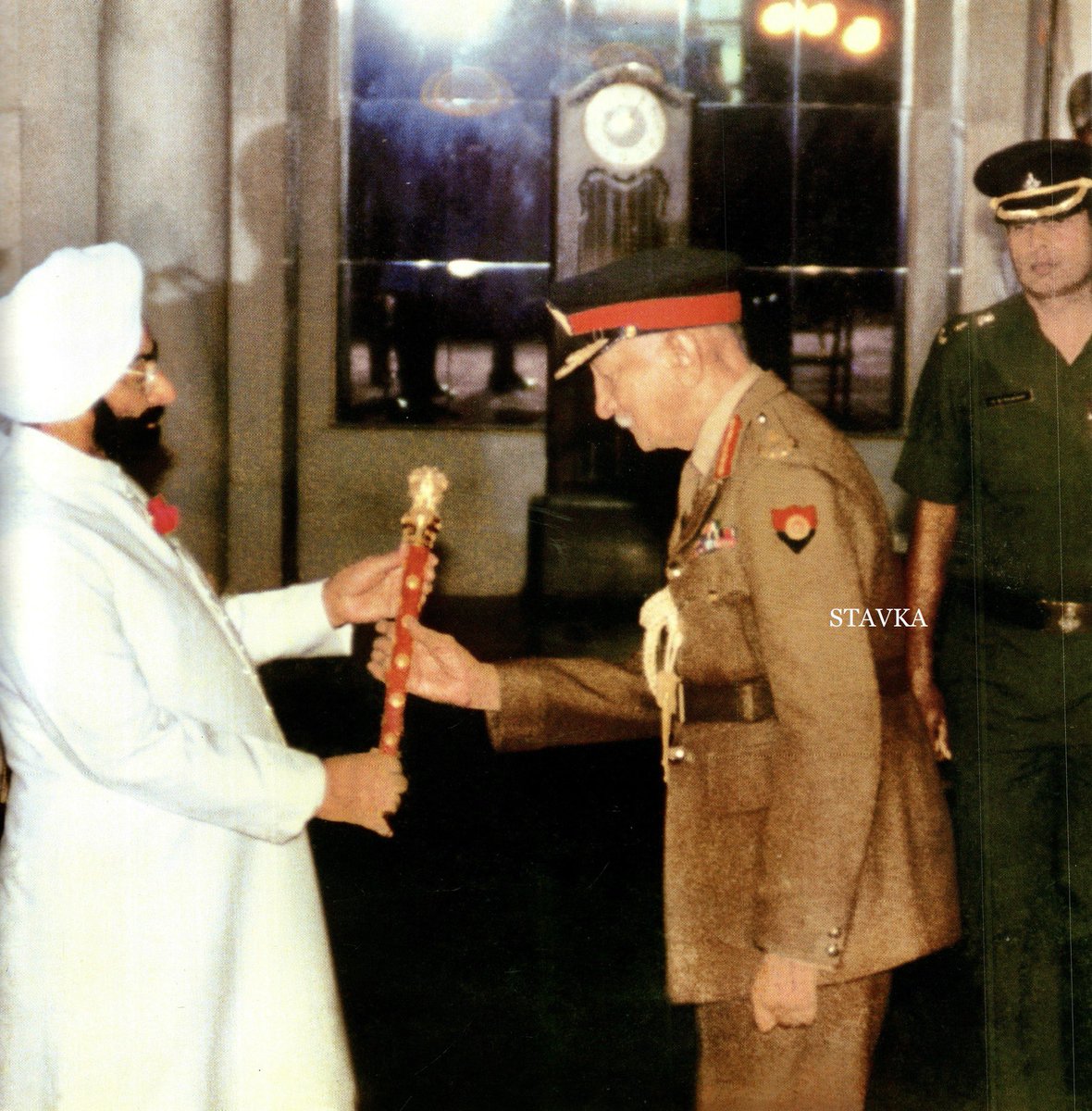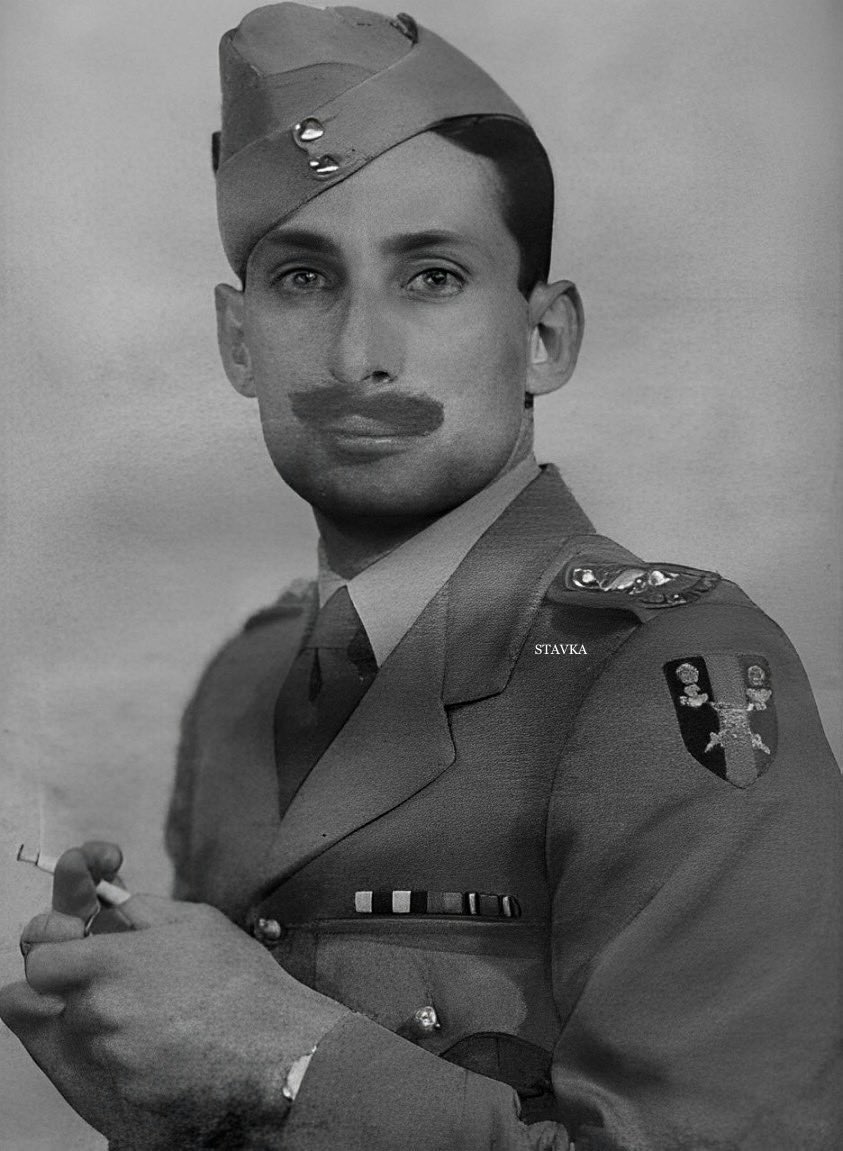(An extract from Field Marshal Sam Manekshaw, Soldiering with Dignity)
The man eventually destined to be free India's first Field Marshal was born on 3rd April 1914 at Amritsar. How did a Parsi couple settle for the holy city of the Sikhs? I once asked him and was told that in+
The man eventually destined to be free India's first Field Marshal was born on 3rd April 1914 at Amritsar. How did a Parsi couple settle for the holy city of the Sikhs? I once asked him and was told that in+

1899, his father recently qualified as a doctor and just married, could make no professional headway in Bombay, and was advised to try his luck at Lahore in the Punjab. With his young wife, he set off by train for Lahore. The long dusty and hot journey took five days and by the+ 

end of it, his young wife, who had never left the comforts and civilization of Bombay, was in hysterics and cried to go back. Poor Dr Manekshaw did all he could to comfort her, but as the train steamed into Amritsar, with her first sight of the Sikhs the young bride screamed her+
lungs out and refused to go any further. So they left the train at Amritsar, and there they stayed for forty-five years.
The Manekshaws had six children, four boys and two girls, and Sam was the fifth child. Sam had his schooling at Nainital's Sherwood College.+
The Manekshaws had six children, four boys and two girls, and Sam was the fifth child. Sam had his schooling at Nainital's Sherwood College.+
After completing his schooling, he should have gone to England to pursue higher studies; this was the promise made to him by his father but, fortunately for the Indian Army, Dr Manekshaw felt that this particular son was far too young to be on his own in a foreign country, even+
with his two elder brothers already studying there. So he was admitted to the Hindu Sabha College, Amritsar. If he had gone abroad, he often reminisces, he would have become a doctor. 'What doctor?' I queried, and was told 'Gynaecologist.'+ 

After a stint in Hindu College, he applied for and was accepted for entry into the first batch of the newly opened Indian Military Academy at Dehradun for training Indians for commissioned rank in the British Indian Army.+ 

He received his commission on 4th February 1934 and, after an attachment as was the practice then with a British Infantry Battalion, the 2nd Battalion the Royal Scots, he joined the 4th Battalion, 12 Frontier Force Regiment, commonly called the 54th Sikhs.+
In 1937, at a social gathering in Lahore he met his future wife, Silloo Bode; they fell in love and were married on 22nd April 1939. Silloo is a graduate of Bombay's renowned Elphinstone College and also studied at the JJ School of Arts there.+ 

A voracious reader, a gifted painter and an extremely intelligent and interesting conversationalist, she has made an admirable wife and a wonderful mother. 

The outbreak of the Second World War saw the 4/12 Frontier Force Regiment in action in Burma with the famed 17 Infantry Division. Sam was separated from his family for over three years and this separation was the cause of a celebrated example he was later to give while answering+ 

questions put to him in his capacity as Chief of the Army Staff by the Pay Commission. The question, which triggered off the reply was, why should the army continue to get separation allowance? This, to clarify, is a token sum every officer and enlisted man gets when his unit+
moves to a non-family station thus necessitating separation. I say 'token' because the name is a misnomer; whereas it is meant to cover the expenditure incurred in running two establishments, the amount paid is, in fact, a pittance.+
For example, an officer used to get just seventy rupees a month and the men an even smaller amount. The answer to explain the need was "After my marriage, I went off to war and didn't see my wife for three long years, and when I returned I found I had a brand-new daughter, and+ 

"We made an immediate recommendation," a senior officer explained, "because you can't award a dead man the Military Cross." His orderly Sher Singh evacuated him to the Regimental Aid Post where the regimental medical officer, Captain G M Diwan, treated him overruling his+
protestations that the doctor treat other patients first. Sam was evacuated to the hospital at Pegu where he was operated upon, and then evacuated further to Rangoon, from where he sailed for India in one of the last ships to leave that port before it fell to the Japanese. +
He still carries the scars of this wound and I am not quite sure whether it is that or regular exercise that keeps his stomach in -- to the envy of people much younger than he. I was to see a great deal of Sher Singh during my tenure in Delhi.+
He and some other grizzled old veterans of the 4/12 Frontier Force Regiment were frequent visitors to Army House and South Block. The entire staff including all guards and sentries, had strict orders that if a man said he was from the 54th Sikhs he was to be led straight to the+ 

Chief, whatever the time or whatever the Chief happened to be doing.
Consequently, these gentlemen would turn up whenever it suited them with a string of requests that ranged from wanting a bag of sugar for a daughter's marriage (easy to solve) to asking that a relative or+
Consequently, these gentlemen would turn up whenever it suited them with a string of requests that ranged from wanting a bag of sugar for a daughter's marriage (easy to solve) to asking that a relative or+
friend's relative be given immediate out-of-turn promotion. When I patiently attempted to explained the impossibility of the latter request and others like it, the worthy would bristle and inform me: "In the British time if the Jangi Lat gave an order it was executed without+ 

question." No amount of explanation that times had changed and that such Nadirshahi orders would now invite representations which could not possibly be answered, would pacify them and they would go away and complain to the Chief about the incapable and unhelpful Colonel Sahib he+ 

had from the Gorkhas.
The war over, saw Sam working in the military operations directorate at army headquarters, first as a general staff officer grade I, and later as director of military operations. It was from here that he oversaw the fighting that broke out between India+
The war over, saw Sam working in the military operations directorate at army headquarters, first as a general staff officer grade I, and later as director of military operations. It was from here that he oversaw the fighting that broke out between India+

and Pakistan, over Kashmir, the two nations that until so recently had been one. It was also under his direct supervision, when the cease-fire was declared, that the famous line called the Cease Fire Line was drawn. Many, many years later, by a strange coincidence, while he was+ 

Chief of the Army Staff, it was he whose brainchild it was to scrap the Cease Fire Line and call it the Line of Actual Control.
Promotions followed in rapid succession and 1959 saw Sam as commandant of the Defence Services Staff College. There his outspoken frankness got him+
Promotions followed in rapid succession and 1959 saw Sam as commandant of the Defence Services Staff College. There his outspoken frankness got him+

into trouble with the defence minister, V K Krishna Menon, and his protégé of the time, the late Lieutenant General B M Kaul; a court of inquiry was ordered against him. Despite persistent questioning I have not been able to ascertain from him the reasons and the facts that led+
up to a situation where the Indian Army could have lost its most brilliant up-and-coming general officer: he just refuses to talk, calling the entire episode, just another phase. Be that as it may, the court of inquiry that was convened with the+
late Lieutenant General Daulet Singh, then Western Army commander, as presiding officer, exonerated Sam, but before a no case could be announced, fate intervened in the shape of the Chinese hordes that swept over what we had always considered the impregnable Himalayas.+
The Indian Army, that proud, disciplined and distinguished force that had fought and triumphed in practically every battlefield of the world, was outmatched, outmaneuvered and outfought; its remnants streamed back dazed and humiliated leaving among the lush green mountains of+ 

the North Eastern Frontier Agency and the stark white to Ladakh its dead, its wounded and its pride.
The North Eastern Frontier Agency, now called Arunachal Pradesh, was where we suffered our worst defeat, and it was to 4 Corps that providence ironically decreed and+
The North Eastern Frontier Agency, now called Arunachal Pradesh, was where we suffered our worst defeat, and it was to 4 Corps that providence ironically decreed and+

Army Headquarters ordered Sam Manekshaw to succeed Lieutenant General B M Kaul, the man who had almost ruined his professional career. He took over 4 Corps on 28th November 1962 on promotion to lieutenant general, and the same day addressed a conference of what must surely have+
been a very shaken group of staff officers. He entered the room with his usual jaunty step, looked as if he were meeting each eye trained on him and said, ‘Gentleman, I have arrived! There will be no more withdrawals in 4 Corps, thank you;' and walked out. But the charisma that+ 

surrounds the man had preceded him and soldier and officer alike knew the 'chosen one' had arrived and henceforth all would be well. It was as if the dark and oppressive atmosphere had suddenly been lightened and Sam was the bearer of the light.+ 

On 4th December 1963, Sam took over as army commander in the west, the second rung from the top. One of his brigade commanders was H S Yadav, the man who had been the principal prosecution witness in the case cooked up against him in 1961+ 

At a party in an officers mess in Kashmir one evening, talk veered round to Yadav, and the senior brass, knowing the background and not averse to making a few points with the army commander, started on what each planned to do to catch or embarrass Yadav.+ 

The army commander heard this for some moments and then butted in ('before I got sick' as he told me later) with 'Look chaps, professionally, Kim Yadav is head and shoulders above most of you, so forget about trying to catch him out. He just lacks character and there is nothing+ 

anyone of you can do about that.'
At a meeting in Delhi a few months later, Chavan, then the defence minister, asked him his views on which army command Sam considered most important, challenging and threatened. Eastern, said Sam, as it had the Chinese in the North,+
At a meeting in Delhi a few months later, Chavan, then the defence minister, asked him his views on which army command Sam considered most important, challenging and threatened. Eastern, said Sam, as it had the Chinese in the North,+
East Pakistan in the South and on its flank insurgency rampant in Nagaland and the Mizo Hills and, if all that was not enough to fill the hands of the incumbent, the troubled state of West Bengal certainly would. Chavan thought over the answer for a few moments and then asked if+
Sam would like to accept the challenge of taking over that command. He accepted immediately.
Eastern Army had to keep one wary eye directed north on the Chinese; another eye had to be kept on erstwhile east Pakistan which lay in its gut, it had to fight insurgency in Nagaland+
Eastern Army had to keep one wary eye directed north on the Chinese; another eye had to be kept on erstwhile east Pakistan which lay in its gut, it had to fight insurgency in Nagaland+

which later spread to the Mizo Hills, and finally it had to watch over the politically volatile states of Assam and West Bengal. It was, therefore, no bed of roses, and the job of lower formations was not facilitated by the army commander's personally coming on the telephone+ 

every now and then and ‘grilling' staff officers and commanders with endless questions about detail.
I remember an occasion in Shillong where I once asked the senior staff officer why he was looking a bit off-colour. He told me he had just finished a telephone conversation+
I remember an occasion in Shillong where I once asked the senior staff officer why he was looking a bit off-colour. He told me he had just finished a telephone conversation+
with the army commander who had wanted answers to so many questions that, 'I am now in orbit.'
His mastery of detail was fantastic and, as I was to learn later, he could quote an answer given verbally or in writing months previously to correct someone who was saying something+
His mastery of detail was fantastic and, as I was to learn later, he could quote an answer given verbally or in writing months previously to correct someone who was saying something+
else. A battalion employed in the Mizo Hills, paying perhaps a little more attention to the welfare of its troops and, in the process, a little less than desirable to the operational side received a rude reminder that 'someone up there' was watching, very keenly, every move+ 
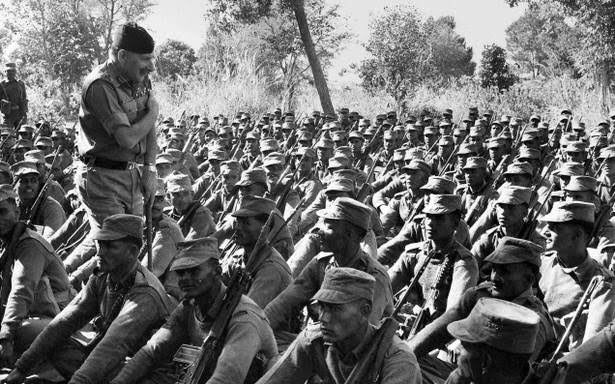
that was made. A parcel of bangles was delivered to the commanding officer with the compliments of the army commander with a cryptic note: 'If you are avoiding contact with the hostile give these to your men to wear.” Needless to say, the next few weeks saw a flurry of activity+ 

by this battalion resulting in another, more soothing message: 'send the bangles back.'
He was officiating as army chief in 1967 when the Chinese had their first clash with the Indian Army since 1962. This occurred at the 14000 foot high pass, Natu La, in Sikkim where the+
He was officiating as army chief in 1967 when the Chinese had their first clash with the Indian Army since 1962. This occurred at the 14000 foot high pass, Natu La, in Sikkim where the+

Chinese learnt to their cost that the Indian Army of 1967 was a different kettle of fish from that of 1962. He was summoned to a meeting of the Cabinet where, as he recalled later, everyone present at the meeting was vying with the others to present to the prime minister his+ 

grasp of the situation and offering one suggestion after another as to what should be done. After hearing most of the speakers, the prime minister enquired whether the officiating army chief, until then a silent spectator, had something to say.+
"I am afraid they are enacting Hamlet without the Prince," he said. "I will now tell you exactly what has happened, and how I intend to deal with the situation." He then proceeded to do so.
Bengal in those days was a very troubled state where anarchy was prevalent, and law and+
Bengal in those days was a very troubled state where anarchy was prevalent, and law and+

order was almost on the way out. Sam was traveling to Dum Dum airport, Calcutta, once when he found the road blocked for traffic by a huge crowd being harangued by one person.
The outrider and the staff officer accompanying him both advised a detour, but this would have meant+
The outrider and the staff officer accompanying him both advised a detour, but this would have meant+
running away and would have been noticed by the locals. So he got out of his staff car instead, and started walking up to the speaker who, he discovered to his disquiet as he approached, was a 'huge fellow, well over six feet tall.' Anyway, hiding his mounting uneasiness, he+ 

put his hand out and announced, 'I am Sam Manekshaw.' This unsettled the other person somewhat as he had probably anticipated an argument. He too, put his hand out and mumbled his name. He was then asked to clear the road, as otherwise 'I shall miss my plane.'+ 

The speaker, by now completely confused, hastened to obey, and the last glimpse the army commander had of his latest acquaintance was of that worthy helping to clear the road.
By then Sam Manekshaw had become one of the most popular and well-known officers in the Indian Army.+
By then Sam Manekshaw had become one of the most popular and well-known officers in the Indian Army.+

Stories of the many admirable qualities he possessed and did not hesitate to display were legion. Always an unconventional dresser, he once met Lieutenant General Kulwant Singh, at that time commanding Western Army and an awe-inspiring man, in a jacket that could best he+
described as a cross between a regulation shirt and bush shirt. When the army commander pointed this out he was asked: "Have you come to see my formation or my dress?" While he could stand up to his superiors, he always stood by his subordinates.+ 
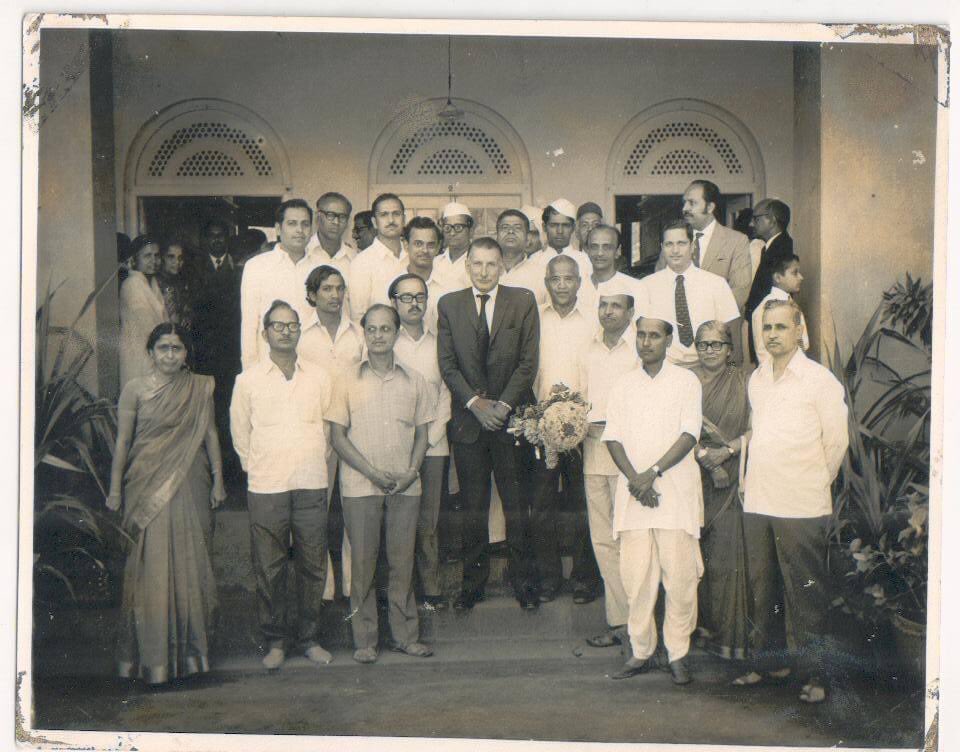
Service with him, it was rumoured, was certain to bring rewards in its wake. But, helpful as he was, he never consciously helped a subordinate at the cost of someone else. In other words, 'No throat was cut.'+
I once asked him if he was aware of the jealousy his so-called favourites aroused among others. He replied he was aware of this but as his 'favourites' were all competent officers he defied anyone to point a finger at them as far as their professional competence was concerned.+
On another occasion I asked him why he could not 'see through' the slick types who fawned and flattered him, and why he acceded to their requests. 'Oh, I see through them all right,' he replied. 'I detest them, but I make use of them.'+
He was human and approachable to a fault. Once, so a story goes, while he was a corps commander, a junior officer on his staff asked for some leave, and the request was turned down by the officer's immediate superior. The officer then tried the indirect approach and made his+ 

problem known to the corps commander who called the man's immediate superior the next day and said, 'Look, I have had a letter from this youngster's father asking that the boy be sent on a spot of leave as there is some family problem to sort out. I am sure we can spare the+
bugger for a few days, let him go, we won't miss him.' The officer got his leave; no feathers were ruffled and everyone was happy, which brings us to his next great quality, the ability to run a very happy and contented team. His professional qualities ensured that the team was+ 

also a competent one. He was believed to finish his own work in an hour and spend the remainder of the time walking from one office to another, sitting down with the harried junior staff and helping them sort out the problems they were working on.+
They said he never raised his voice, but even a mild reproving look from him with a 'Sweetheart, this won't do,' was enough to shake the stoutest heart. Sharply critical, but always constructively so, there was nothing his eye ever missed or his fantastically retentive memory+ 

ever forgot. He forgave easily, being basically a kind man While he was Chief of the Army Staff, at an 'at Home' he attended in Rashtrapati Bhavan, as the guests came out into the Mughal Gardens he found himself walking beside Mr V K Krishna Menon, of whom mention has been made+ 
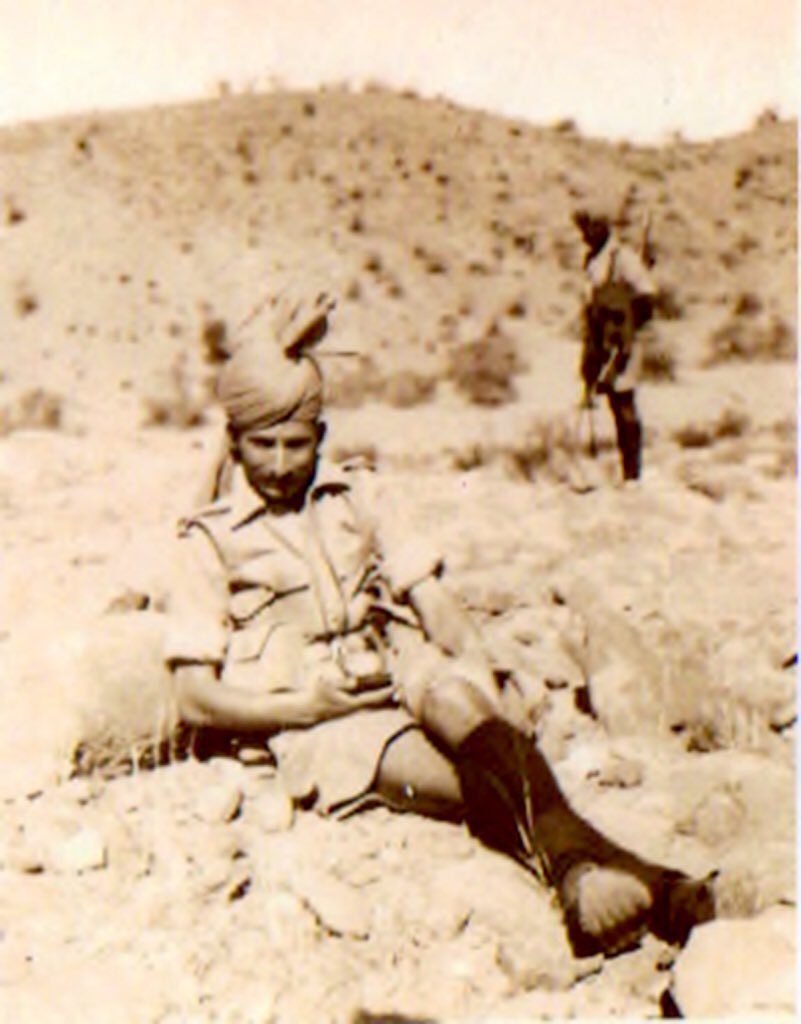
Mrs Manekshaw, not quite as forgiving as her spouse, at least on this occasion, replied brusquely: 'No, I don't.'
(Excerpted from Field Marshal Sam Manekshaw, Soldiering with Dignity, by Lieutenant General Depinder Singh.)
(Excerpted from Field Marshal Sam Manekshaw, Soldiering with Dignity, by Lieutenant General Depinder Singh.)

• • •
Missing some Tweet in this thread? You can try to
force a refresh






